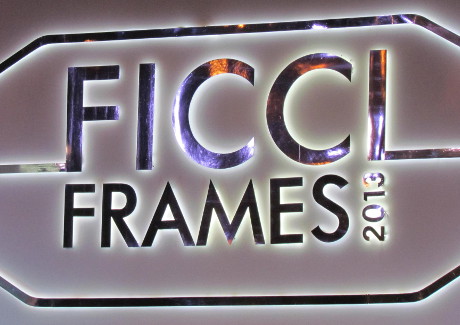In a session titled 'Sports: Economic viability and the crisis within' at FICCI Frames 2013 moderated by sports commentator Harsha Bhogle, speakers discussed the upward spiral in cost of acquiring sports properties, and whether revenues were keeping pace. Bhogle also touched upon the future of the business with digitisation and regulations coming in.
Bhogle began the discussion by bringing in Nitin Kukreja, president, Star India, and questioned him about the Rs 3,850 crores paid by the company for BCCI cricket rights, and the challenges sports broadcasters face in the country.
Kukreja said, "The challenges are many. Ads, distribution and new media remain major challenges. India is a one sport country. We need to have a habit formation and within the one sport follow different leagues and different schedules. Every tournament is treated differently within the sport and that is a challenge too."
Kukreja also felt that the advancement of technology was a problem. "It's a challenge because technology is moving faster than regulations. Regulations aren't letting us embrace the new technology available."
Bhogle then brought in Prasanna Krishnan, COO, Neo Sports, and asked him for the reasons for pulling out of the bid for BCCI rights.
Krishnan said, "Revenue streams are still slow. We expected digitisation to happen sooner than it actually has. Had digitisation taken place when we had the rights, it could be a different thing. For now, I think the basic structural issue of cost remains."
Venu Nair, head - South Asia, World Sports Group, blamed broadcasters themselves for the high costs. He said, "Issue about revenues exists because bidders and bidding extremely high amounts. If costs have gone up, it's the broadcaster who is to blame. They have to ask themselves if they can recover the money spent. I honestly don't think they can recover the money. It can get a little more complicated for the sport itself if the broadcaster has no justification for the cost of the bid."
On the back of these arguments, Sundar Raman, CEO, IPL, stepped in. "I feel the the lone guy in the 'Blue' corner while the rest of you'll (speakers) are in the Red corner. I don't think there's a crisis in the sports broadcasting space."
He compared the price of channels in India to the price internationally. "We need to address the audience. Broadcasters buy the rights for a certain value. Today the amount of money needed to get access to sports channels in the UK, USA and even South Africa, is more compared to India. Channels need to stop depending on advertising alone to gain revenues. Till the time they keep depending on advertisers, we'll see a see-saw battle. This will lead to a downward spiral. We have to de-risk ourselves from (dependency on) advertising."
He also spoke about the need for sports to market itself better. Another pointer raised by Raman was a the regional opportunities available. "We tend to see India as one big market. Regional channels exist and are doing well. I don't see any reason why sports commentary can't be provided with these languages."
Kukreja then built on the point made by Krishnan. He said, "Market pricing will come into place. Consumers should get to choose what they want. Only then will they be able to judge whether a certain price is expensive or not."
Bhogle then introduced Kushal Das, secretary general, All India Football Federation, and asked him to list out the challenges for sports other than cricket.
Das said, "The challenge for football doesn't come from cricket, but from football itself. Indian football has uncertainty in schedules because of basic infrastructural issues. This makes it very difficult for broadcasters. We don't see such issues when it comes to European football, which is being followed currently in the nation. Football needs to create a product. We've been looking at it for a while and looking to get the right Indian icons to develop this product."

